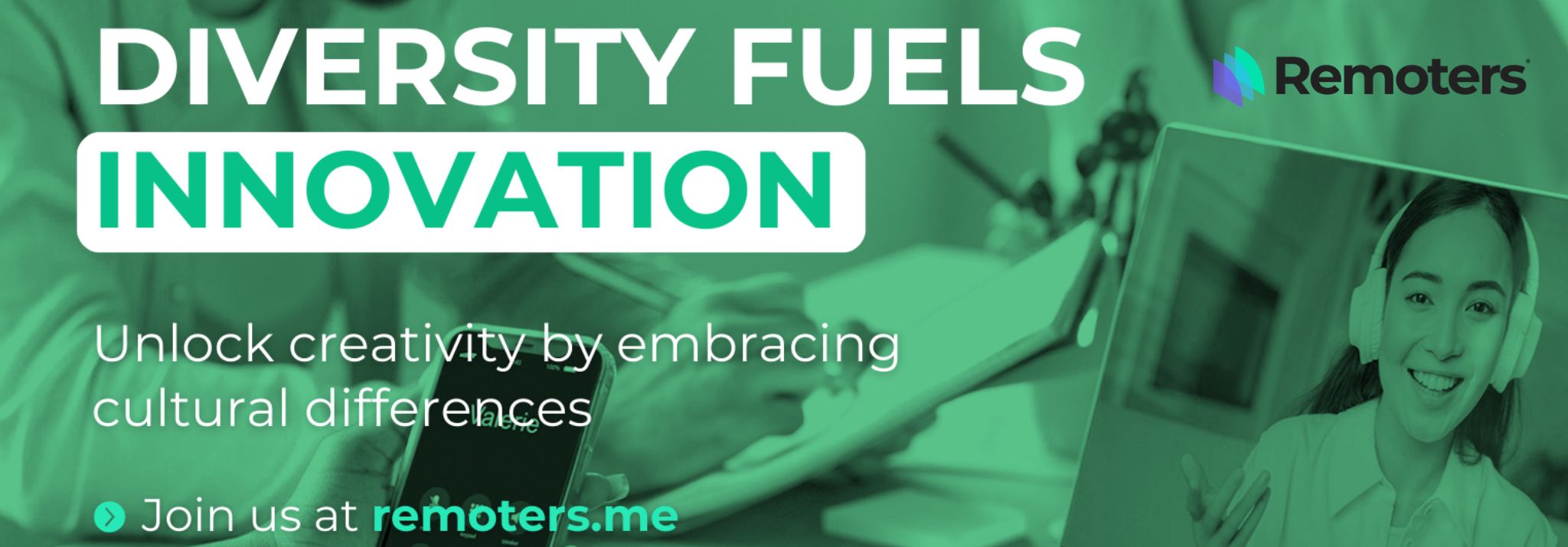Maximizing the Potential of Remote Talent: Management, Communication, and Cultural Diversity
In a world where global connectivity is more accessible than ever, companies have the opportunity to tap into a borderless talent market. BHH provider Remoters, a pioneering company in sourcing remote talent worldwide at competitive costs, specializes in connecting organizations with multilingual professionals who bring unique skills from any part of the planet. However, managing a remote and multicultural team can present challenges. In this article, we explore how to effectively manage remote talent, overcome cultural differences, and optimize communication techniques.
Managing a remote team requires a strategic approach to ensure productivity and cohesion. Here are the key elements for effective management:
- Set Clear and Measurable Objectives: From the beginning, it is crucial to define specific, achievable, and measurable goals for each team member.
- Implement Collaboration Tools: Technology is essential for managing distributed teams. Tools like Slack, Microsoft Teams, and Asana facilitate communication and project coordination. These platforms allow task management, document sharing, and efficient tracking.
- Foster Autonomy and Trust: Offering autonomy to remote professionals can improve their motivation and performance. Provide employees with the necessary tools and resources and trust their ability to fulfill their responsibilities.
- Conduct Regular and Proactive Follow-ups: Organize regular meetings to review progress and resolve issues. Follow-up sessions help maintain alignment with objectives and address any challenges before they become major problems.
Working with a multicultural team brings the richness of diverse perspectives but also unique challenges. Here are some strategies for managing these differences:
- Develop Cultural Sensitivity: Understanding and respecting cultural differences are essential. Implement intercultural competence training programs to help team members understand and value the diverse cultures represented in the group.
- Adapt Your Management Approach: Work styles and expectations can vary by culture. Be flexible in your management approach and adjust your strategies to accommodate these differences. For example, some countries value a more formal communication style, while others prefer a more informal approach.
- Promote Inclusion and Respect: Ensure that all team members feel valued and respected. This includes recognizing and celebrating cultural holidays and fostering an inclusive work environment.
- Facilitate Intercultural Learning: Organize activities and training sessions to promote intercultural understanding. Continuous learning about the cultures represented in your team can improve collaboration and cohesion.
- Effective communication is key to the success of any remote team. Here are some techniques to improve communication:
- Choose the Appropriate Communication Channel for Each Type of Message: Instant messaging platforms are useful for quick communications, while video calls are better for detailed discussions and team meetings.
- Clarity is Fundamental in Written Communication: Use clear language and avoid complex phrases that can lead to misunderstandings. Structuring your messages with lists and headings can help make information more understandable.
- Continuous Feedback is Essential to Improve Processes and Resolve Issues: Encourage team members to share their opinions on communication and work processes and provide constructive feedback to promote development.
- Consider Different Time Zones When Scheduling Meetings and Setting Deadlines: Flexibility in planning can help maintain team productivity and well-being, avoiding conflicts and ensuring everyone can participate effectively.
Including multilingual professionals in your team not only opens new business opportunities but also facilitates global communication and expansion into international markets. Here are some advantages of working with multilingual professionals:
- Access to Global Markets: Multilingual professionals can help your company enter international markets and manage relationships with clients and partners from different regions of the world.
- Improved Communication with International Clients: The ability to communicate in multiple languages enhances customer service and improves the customer experience in different markets.
- Cultural Adaptation: Professionals who understand multiple cultures can help adapt marketing strategies and products to better meet the needs and expectations of diverse customers.
- Strengthening International Relationships: Multilingual teams can build stronger and more effective relationships with international partners, facilitating negotiations and global collaborations.
Remote talent, especially multilingual talent, offers companies a significant competitive advantage by providing access to global skills at competitive costs. With its focus on sourcing remote professionals from anywhere in the world, the company is well-positioned to
help businesses manage distributed teams effectively. By adopting effective management, communication, and cultural sensitivity practices, organizations can overcome the challenges associated with remote work and build productive, cohesive, and globally competitive teams.


